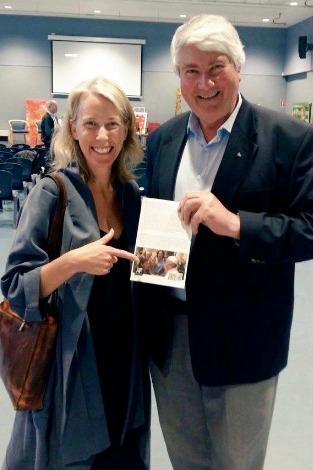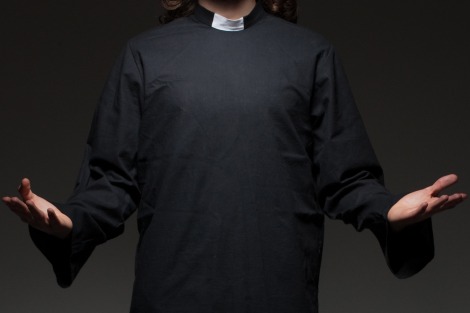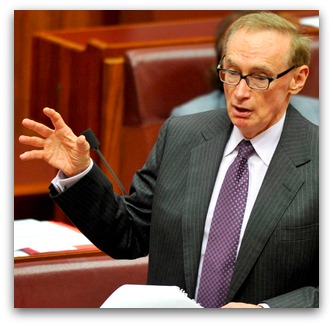Keywords: Bishop Pat Power
There are more than 24 results, only the first 24 are displayed here.
Become a subscriber for more search results.
-

RELIGION
- Frank Brennan
- 17 February 2017
3 Comments
The commission's forensic scrutiny of past actions of church officials in no way constitutes an interference with the freedom of religion. Its spotlight is to be welcomed, provided only that it is shone on a truly representative sample of all institutions which have been found wanting and provided the same light filter is applied to all institutions. I do however have a problem with the commission making findings on issues like the want of compassion when those findings are made only against a Church.
READ MORE
-

RELIGION
- Frank Brennan
- 03 December 2015
The consideration of medico-legal problems in the public square of a pluralistic democratic society keeping pace with profound technological change is often marked by simplistic assertions, precluding considerations of comprehensive world views, whether religious or philosophical. It is now commonplace for doctors to be told to leave their consciences at the door, as their patients are consumers and they are suppliers and of course the market decides. Debates about law and policy are often resolved with simplistic assertions about individual rights and autonomy, with little consideration for the public interest, the common good, and the doctor-patient relationship. Even conscience is said to be a matter for contracting out. This evening I ask whether there are more compelling ways to resolve medico-legal dilemmas, while conceding a limited role for law in determining the range of acceptable answers.
READ MORE
-

ENVIRONMENT
- Frank Brennan
- 06 November 2015
1 Comment
Francis does not pretend to have answers to the big questions which will confront world leaders when they gather in Paris. But he does think the science is IN, and the evidence is clear that much of the climate change, loss of biodiversity and water shortages are the result of human action. We are blessed to have a pope who speaks to all the world about the prudence, justice and empathy required so that more people on our planet might enjoy integral human development.
READ MORE
-

AUSTRALIA
- Binoy Kampmark
- 29 May 2015
13 Comments
There have been no violent usurpations. No coup. No acts of massive violence. But data retention laws have been passed. National security legislation protecting ASIO from all operations short of murder while punishing the disclosure of material on secret intelligence operations has been enacted. The stripping of citizenship of dual nationals is on the books. And more.
READ MORE 
-

RELIGION
- Pat Power
- 14 February 2014
49 Comments
Most priests believe the Royal Commission was very much needed to face up to a terrible episode in the Church's history. They also believe that sexual abuse took place in an environment of clericalism which was imposed by the highest authority in the Church, and which they felt powerless to confront. 'Father is always right' operated from the Pope down and any questioning of it was seen as disloyal or even heretical.
READ MORE 
-

RELIGION
- Andrew Hamilton
- 25 July 2013
26 Comments
Robinson's recent book on the culture of the Catholic Church critiques the factors that have contributed to clerical sexual abuse of children. Robinson desires institutional changes, yet institutional changes are insufficient unless relationships and attitudes change. In this there is a happy conjunction between Robinson's project and the way of proceeding of Pope Francis.
READ MORE 
-

AUSTRALIA
- Andrew Hamilton
- 11 December 2012
15 Comments
Evidence about the persecution of returned Sri Lankan asylum seekers calls into question the justice of summary repatriation. And the actions of the Australian Government have thrown doubt on its legality. The rule of law is a delicate web of relationships that protects the weak from the tyranny of the great, and we are all weaker when it is broken.
READ MORE 
-

RELIGION
- Chris McGillion
- 29 November 2012
43 Comments
It is inconceivable that Catholic authorities would countenance the state interfering in the sacramental life of the Church. And any attempt to do so would quickly turn into an issue of freedom of religion. If the Royal Commission were to go down that path it could quickly find it had bitten off much more than it can chew.
READ MORE 
-

RELIGION
- Pat Power
- 14 November 2012
61 Comments
Fifty years ago, Pope John XXIII called Catholics to 'read the signs of the times' to bring the light of the Gospel on to every aspect of the life of the Church. Unless women and married people are made part of Church governance, there will continue to be a lack of balance and reality in its teaching, especially around sexuality.
READ MORE 
-

AUSTRALIA
- Michael Mullins
- 02 April 2012
28 Comments
Foreign minister Carr used the phrase 'overlap of cultures' to describe people of different cultures living together. The bishops are entitled to expect the Government not to legislate to 'smash' the sacrament and religious institution of marriage. But tolerance of other cultures and faiths must be reciprocal.
READ MORE 
-

ARTS AND CULTURE
- Rod Pattenden
- 29 February 2012
3 Comments
Culture in Australia is big business. The role of director of an art gallery involves all the flash of celebrity and the smoky mirrors of politics. Now that the Art Gallery of NSW has announced the appointment of its new director, the pressure is on for Melbourne's NGV.
READ MORE 
-

RELIGION
- Frank Brennan
- 22 November 2011
1 Comment
Text from the 4th Annual Gerald Ward Lecture 'How do we design a dignified welfare safety net without becoming a Nanny State? — Lessons from Catholic Social Teaching', presented by Fr Frank Brennan SJ at the National Library of Australia, 18 November 2011.
READ MORE